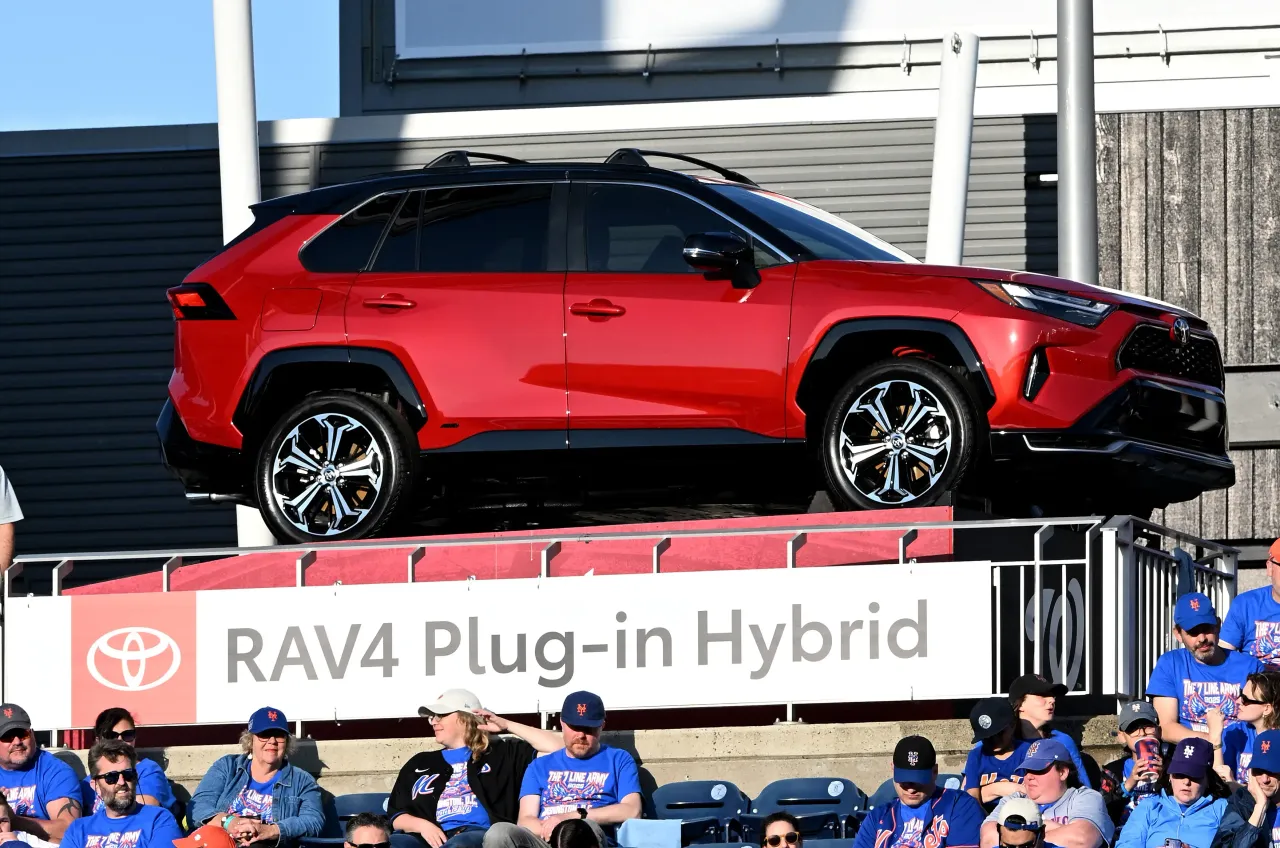Advertisement|Remove ads.
Japanese Automakers Aren’t Passing The Pain From Trump Tariffs To Buyers Yet As Trade Deal Remains Unsettled

Japanese automakers have so far resisted passing the full cost of U.S. import tariffs on to consumers, with only three of the six major carmakers raising vehicle prices in the U.S. market.
Among them, only Subaru's increase came close to matching the 25% duty imposed under President Donald Trump’s trade policy, Bloomberg reported.
Toyota made only modest adjustments on select models, while Mitsubishi raised prices by just 2.1% across three vehicles.
For comparison, the average new car price in the U.S. rose 2.5% in April to around $48,700.
This restrained pricing approach reflects a reluctance to shock American consumers but may backfire, weakening Japan’s negotiating hand as the July 9 deadline for across-the-board 24% tariffs approaches.
Trump has hinted these could go as high as 35%, making the issue a major sticking point in the ongoing U.S.-Japan trade negotiations.
Despite seven rounds of talks led by Japan’s chief negotiator Ryosei Akazawa, no breakthrough has been reached.
Japan continues to push for a single, comprehensive resolution, while the U.S. remains focused on reducing trade deficits in the automotive sector.
Analysts say that if tariffs remain in place, Japanese carmakers may be forced to raise U.S. prices more substantially, possibly when models are refreshed with new specifications.
However, any hikes are expected to roll out slowly, and it could take three to four years before the full impact of a 25% tariff is visible in retail prices.
The auto industry remains a key part of Japan’s economy, contributing around 10% of GDP and accounting for one-third of its exports to the U.S.
The SPDR S&P 500 ETF (SPY) is up 6.1% for the year, and the iShares MSCI Japan ETF (EWJ) has gained 11.1%.
For updates and corrections, email newsroom[at]stocktwits[dot]com.














/filters:format(webp)https://news.stocktwits-cdn.com/large_Solana_722b6a3879.webp)
/filters:format(webp)https://news.stocktwits-cdn.com/Anushka_Basu_make_me_smile_in_the_picture_b92832aa_af59_4141_aacc_4180d2241ba8_1_2_png_1086e0ed8c.webp)
/filters:format(webp)https://news.stocktwits-cdn.com/large_X_Elon_Musk_274c6a8683.webp)
/filters:format(webp)https://news.stocktwits-cdn.com/large_kevin_o_leary_OG_jpg_2789641a97.webp)
/filters:format(webp)https://news.stocktwits-cdn.com/large_Getty_Images_2200882557_jpg_53f3e467bc.webp)
/filters:format(webp)https://news.stocktwits-cdn.com/large_Getty_Images_2260269284_jpg_cf42b9b8c3.webp)
/filters:format(webp)https://news.stocktwits-cdn.com/large_Patrick_Witt_d5f3eaa4da.webp)